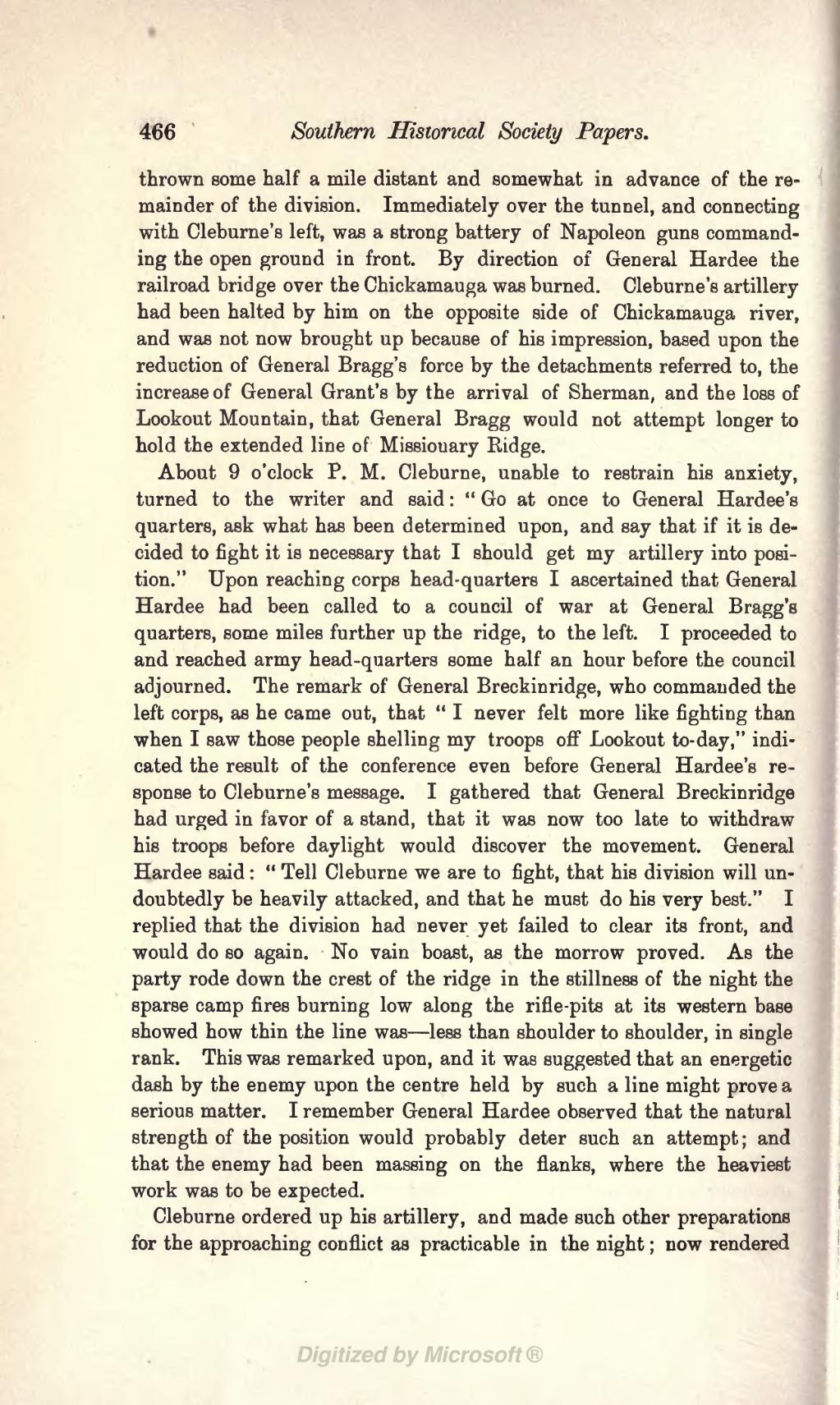thrown some half a mile distant and somewhat in advance of the remainder of the division. Immediately over the tunnel, and connecting with Cleburne's left, was a strong battery of Napoleon guns commanding the open ground in front. By direction of General Hardee the railroad bridge over the Chickamauga was burned. Cleburne's artillery had been halted by him on the opposite side of Chickamauga river, and was not now brought up because of his impression, based upon the reduction of General Bragg's force by the detachments referred to, the increase of General Grant's by the arrival of Sherman, and the loss of Lookout Mountain, that General Bragg would not attempt longer to hold the extended line of Missionary Ridge.
About 9 o'clock P. M. Cleburne, unable to restrain his anxiety, turned to the writer and said: "Go at once to General Hardee's quarters, ask what has been determined upon, and say that if it is decided to fight it is necessary that I should get my artillery into position." Upon reaching corps head-quarters I ascertained that General Hardee had been called to a council of war at General Bragg's quarters, some miles further up the ridge, to the left. I proceeded to and reached army head-quarters some half an hour before the council adjourned. The remark of General Breckinridge, who commanded the left corps, as he came out, that "I never felt more like fighting than when I saw those people shelling my troops off Lookout to-day," indicated the result of the conference even before General Hardee's response to Cleburne's message. I gathered that General Breckinridge had urged in favor of a stand, that it was now too late to withdraw his troops before daylight would discover the movement. General Hardee said: "Tell Cleburne we are to fight, that his division will undoubtedly be heavily attacked, and that he must do his very best." I replied that the division had never yet failed to clear its front, and would do so again. No vain boast, as the morrow proved. As the party rode down the crest of the ridge in the stillness of the night the sparse camp fires burning low along the rifle-pits at its western base showed how thin the line was—less than shoulder to shoulder, in single rank. This was remarked upon, and it was suggested that an energetic dash by the enemy upon the centre held by such a line might prove a serious matter. I remember General Hardee observed that the natural strength of the position would probably deter such an attempt; and that the enemy had been massing on the flanks, where the heaviest work was to be expected.
Cleburne ordered up his artillery, and made such other preparations for the approaching conflict as practicable in the night; now rendered
